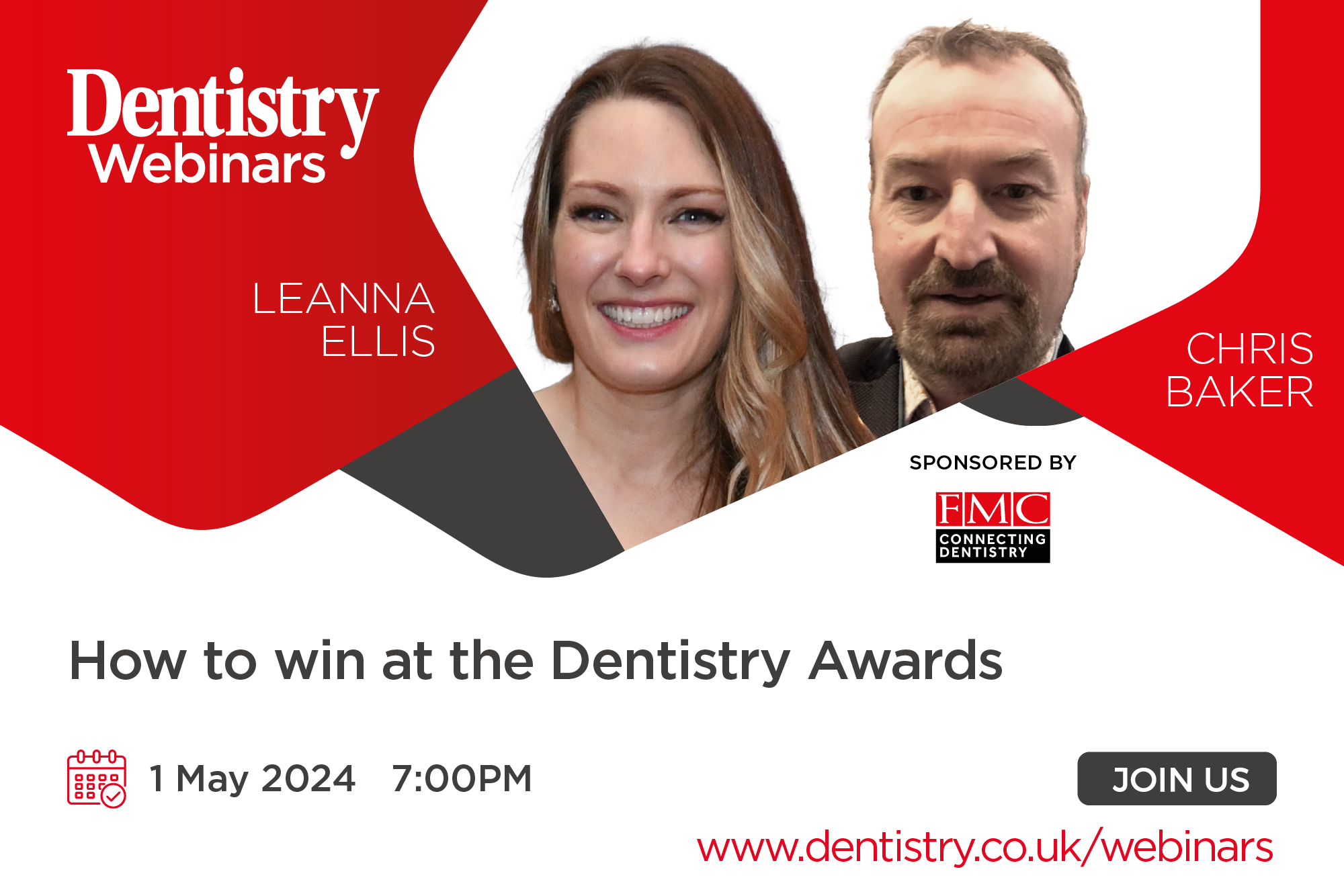
This Stop Snoring Week, Charlotte Leigh discusses what causes snoring and how dental professionals are uniquely placed to screen and treat it.
A good nights sleep is crucial. Snoring and sleep related breathing disorders disrupt sleep for the patient and the whole family.
Snoring is part of the group of sleep related breathing disorders with snoring at one end of the spectrum and obstructive sleep apnoea (OSA) at the other. Screening and treating snoring can prevent sleep disturbances progressing to OSA and more serious health consequences.
I am Dr Charlotte Leigh and I graduated from the University of Leeds 2012 and work in general practice at Montagu Dental (Central London). After completing a MSc in restorative dental practice with distinction at the Eastman Dental Institute in 2019, I wrote my dissertation on ‘What do general dental practitioners know about snoring and obstructive sleep apnoea?’ The answer is very little, and this inspired my journey.
What causes snoring?
Snoring occurs when you make noises while you sleep. As your airway narrows and the soft tissue of your nose, mouth and throat vibrate as you breathe in and out, a noise is created. Snoring can affect anyone and often gets worse with age. It is considered one of the most common symptoms of OSA.
What can cause your airway to narrow?
- Anatomy – A narrow airway can be caused by a large tongue, V shaped palate, enlarged tonsils, a class 2 malocclusion or an elongated soft palate
- Age – As we age our muscle tone reduces and this can cause all our muscles to relax
- Medications and alcohol – This can cause the oral muscles to relax and increase the likelihood and severity of snoring
- Male – Men often have a larger oropharynx making snoring more likely
- Obesity – Increase in soft tissue, particularly in the oral/neck area (neck circumference), can reduce the airway space
- Disease, allergies or Inflammation – Any blockage or inflammation due to disease can reduce the airway space.
What impact does snoring have on patients?
Snoring may result in excessive daytime sleepiness, loss of concentration, poor productivity and psychological disturbances that may eventually cause deterioration of the patient life quality unless treated. Sleep is a critical part of health and wellbeing. Chronic snoring can, over time, lead to low blood oxygen levels and an increased risk of heart attack, type 2 diabetes, stroke and high blood pressure.
The mental benefits of sleep are also important. Sleep problems can make daily life feel more stressful and less productive. Some people with chronic trouble sleeping (insomnia) are more likely to have mental health problems and depression. Sleep needs vary, but most adults should aim for about seven to nine hours of sleep a night.
The most common issue associated with snoring and daytime sleepiness is OSA which happens when the airway is blocked or closes during sleep. OSA can affect people of all ages, but is more common in men than women and in overweight people of both sexes.
Approximately 1.5 million adults in the UK suffer from OSA. However, very few are officially diagnosed. If untreated, OSA can shorten life expectancy and result in serious comorbidities including diabetes, high blood pressure and heart disease. Treatment is simple and effective yet not often widely known about and discussed.
Screening and treating snoring
Dentists can assist in screening and treating snoring and OSA. It is estimated that the NHS could save £55 million a year if all moderate to severe cases of OSA were diagnosed and treated.
The most important part of treating snoring is working out what your causes is. A full consultation with a health professional (dentist or doctor) with an interest in treating snoring and sleep apnoea can be very helpful. In practice, I often seen bruxists who cannot tolerate a mouthguard due to snoring or seemingly very ‘healthy’ patients with high caries due to constant snacking.
All consultations will discuss all your sleep habits and consider referrals to a sleep physician or ENT (ear nose and throat) doctor if necessary. Two simple questionnaires (Stop Bang and Epworth Sleepiness Scale) can help us screen for OSA. We often arrange overnight sleep test to provide a real look at sleep and discuss the treatment, which would be the most beneficial.
Treatment can range for CBT, mandibular advancement devices (MAD), continuous positive airway pressure machines (CPAP) to surgery.
Dentists are uniquely placed to help screen and discuss sleep disturbances. This can help achieve optimum health for all our patients.
Follow Dentistry.co.uk on Instagram to keep up with all the latest dental news and trends.



